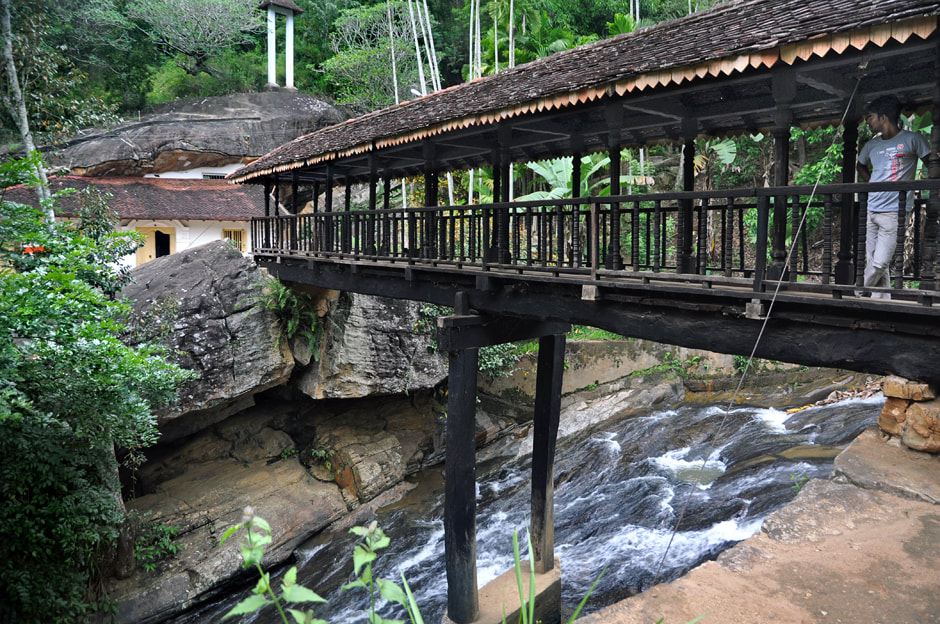
The Bogoda Wooden Bridge is an ancient and historically significant structure located near the town of Badulla in the Uva Province of Sri Lanka. This unique bridge, which dates back to the 16th century, is renowned for being the oldest surviving wooden bridge in Sri Lanka, and it stands as a remarkable example of traditional Sri Lankan craftsmanship and engineering.
Constructed entirely out of wood, the bridge spans the Gallanda Oya River, a tributary of the Mahaweli River. One of the most fascinating aspects of the Bogoda Wooden Bridge is that it has been built without the use of nails or metal fastenings. Instead, wooden pegs and an intricate system of joints and beams hold the structure together, showcasing the advanced woodworking skills of ancient Sri Lankan artisans. The bridge is covered with a roof made of wooden tiles, which has helped protect it from the elements over the centuries.
The bridge is part of a larger complex that includes the Bogoda Temple, an ancient Buddhist shrine located nearby. The temple, which is believed to have been constructed during the same period as the bridge, adds to the historical and cultural significance of the site. Visitors to the Bogoda Wooden Bridge can also explore the temple, which houses beautiful frescoes, ancient inscriptions, and a statue of Lord Buddha.
The setting of the Bogoda Wooden Bridge is picturesque, surrounded by lush greenery and the serene flow of the river beneath. The tranquil environment, combined with the historical and architectural significance of the bridge, makes it a popular destination for both tourists and locals. The area is ideal for those who appreciate history, nature, and traditional craftsmanship.
Despite its age, the Bogoda Wooden Bridge remains remarkably well-preserved, thanks in part to the efforts of local authorities and conservationists who recognize its value as a cultural and historical landmark. Visiting the bridge offers a glimpse into Sri Lanka’s rich heritage and provides an opportunity to marvel at the ingenuity and skill of its ancient builders.
